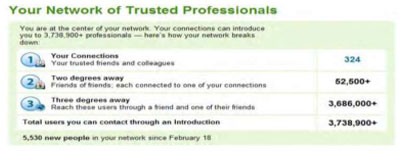Google is changing – will keywords become obsolete?
3 December 2012 By Northern Lights
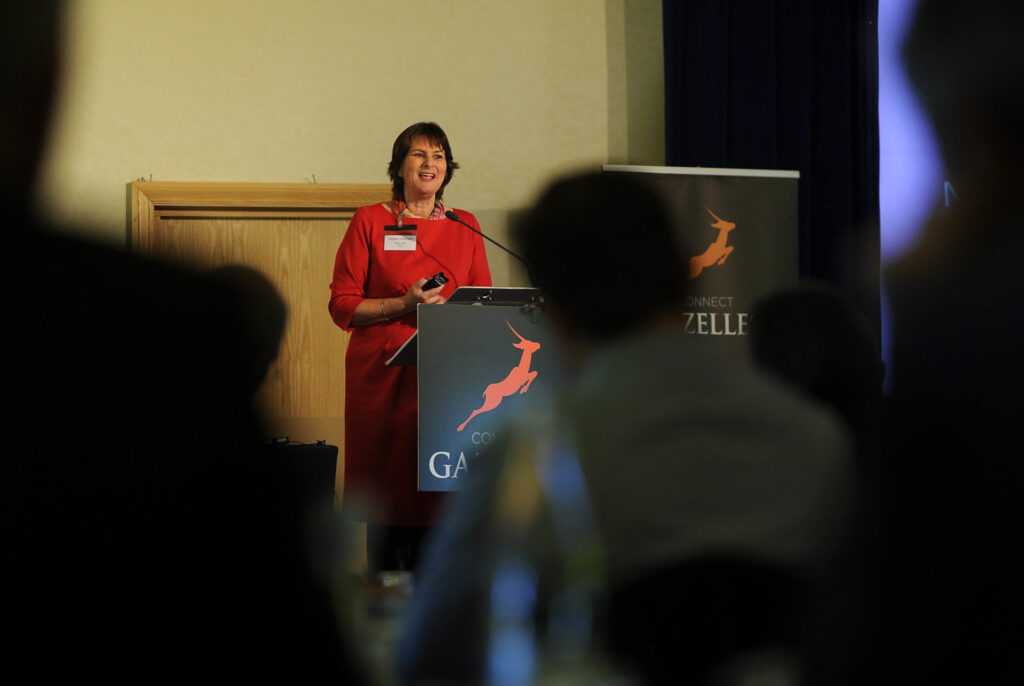
 I was delighted to join an illustrious panel of social media – experts? – at the Connect Gazelles Summit last week to explain to 200 entrepreneurs why social media is important in the B2B market. (The question mark is because I haven’t found anyone who ever likes to be called an ‘expert’ in social media – it’s too evolving and fast changing).
I was delighted to join an illustrious panel of social media – experts? – at the Connect Gazelles Summit last week to explain to 200 entrepreneurs why social media is important in the B2B market. (The question mark is because I haven’t found anyone who ever likes to be called an ‘expert’ in social media – it’s too evolving and fast changing).
Following on from the likes of Lord Kirkham who built up the DFS chain, Martin Penny of GHD hair straighteners fame and Paul Walker who grew Sage to its mega status, I did wonder if anyone would be left for our session after coffee. We need not have worried – the packed room showed just how interested business leaders are in this topic.
I asked the room where people are at with social media – here was the straw poll of hands
– 99% are on LinkedIn
– 5% think they are using LinkedIn strategically
– Only 1% think social media is just for celebrities or teenagers
So social media is now seen as a serious business tool – but business leaders are still not sure how to use it.
Here were the points that seemed to interest business leaders the most – they were hungry to learn.
 1. Google algorithms are changing from keywords to sharing
1. Google algorithms are changing from keywords to sharing
This point probably made the most impact. These days, most businesses are concerned about being found on Google searches. In order to appear high up on a Google page for searches on a particular word, you need to make sure you have carried out search engine optimisation (SEO) for those words and phrases.
In the last few years, success has depended on identifying keywords and getting lots of links to your site based on those words.
But lots of clever people have worked out how to get high Google rankings, but often to very poor quality websites.
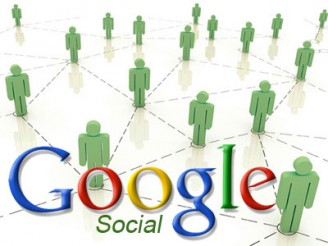 Google is starting to move away from keywords being as important as how do people ‘rate’ your site. So if they see a lot of people tweeting about your site, sharing blogs on LinkedIn, leaving comments, clicking through to YouTube – this is all starting to count more for SEO.
Google is starting to move away from keywords being as important as how do people ‘rate’ your site. So if they see a lot of people tweeting about your site, sharing blogs on LinkedIn, leaving comments, clicking through to YouTube – this is all starting to count more for SEO.
It is the influence of your site that they want to measure – and that’s where social media is playing an increasingly important part.
2. The power of social media networks
I’ve often heard business people sounding dumbfounded by LinkedIn, ‘I’ve got 1,000 contacts on my personal database – why would I want to share those with others, why would I want to create another database?’.
This is to miss the point of social networks. It’s not your direct contacts that are so important as the contacts of those – your second degree contacts as it were.
LinkedIn has stopped calculating the power of your network, but I took a screen grab of this a couple of years ago, which makes the point. If you are researching a market, want to be introduced in to a particular company or want to meet a particular person – then to some extent the larger your network the more chance of you being able to do this through people you know (and trust).
But I would still argue that you want to focus on building quality networks, not go for quantity.
3. Blogs are the centre-piece for most B2B social media strategies
I was recently in Dubai chatting to the MD of a very successful aviation refuelling business. He doesn’t get social media at all.
I asked him, do you ever go to the internet to find the solution to a problem? Yes, he said – things like ‘why am I getting this Word error message?’ So, I said, what might your customers Google? And the penny dropped. He said ‘there is a big problem when refuelling aircrafts. Employees sometimes drive away without disconnecting the pipes – we often get emails from customers who don’t want to admit they over-rode the safety system but need to know what they should do. We try and reassure them they are not the first or last person to do this and then give them some tips. Despite all the safety checks built into the system, people do still over-ride them.”
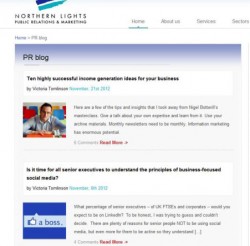 This is the sort of topic that makes a really good blog. Answering questions, solving problems, giving insights which will help your customers. And they can share their experiences – anonymously or identified as they want. These are the sort of blogs that drive traffic to your website, you can tweet about, share on LinkedIn. And Google loves all this activity and will improve your ranking.
This is the sort of topic that makes a really good blog. Answering questions, solving problems, giving insights which will help your customers. And they can share their experiences – anonymously or identified as they want. These are the sort of blogs that drive traffic to your website, you can tweet about, share on LinkedIn. And Google loves all this activity and will improve your ranking.
4. Twitter, LinkedIn, Facebook, YouTube – they are all search engines
It’s easy to think of Google as the only search engine worth bothering about. But don’t forget social media – apparently a couple of years ago, more people were using Facebook as a search engine than Google – probably searching for people they know.
LinkedIn is a fantastic search engine for business. Use the Advanced Search function and type in a job title (if you are recruiting) or a company name (if you are targeting new business) and see who you know or who can help you with background information or introductions.
And that is why it is so important to have a professional LinkedIn profile with keywords about your business in the summary.
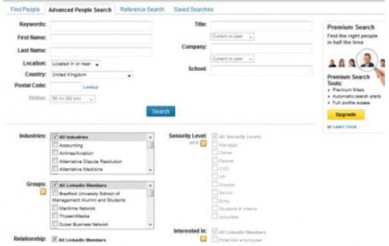 After the event I had a number of very kind emails saying thanks for the ‘light bulb moments’ and ‘did you hear the penny drop?!’
After the event I had a number of very kind emails saying thanks for the ‘light bulb moments’ and ‘did you hear the penny drop?!’
Which bit of B2B social media are you struggling to grasp – and where do you see the opportunities?

